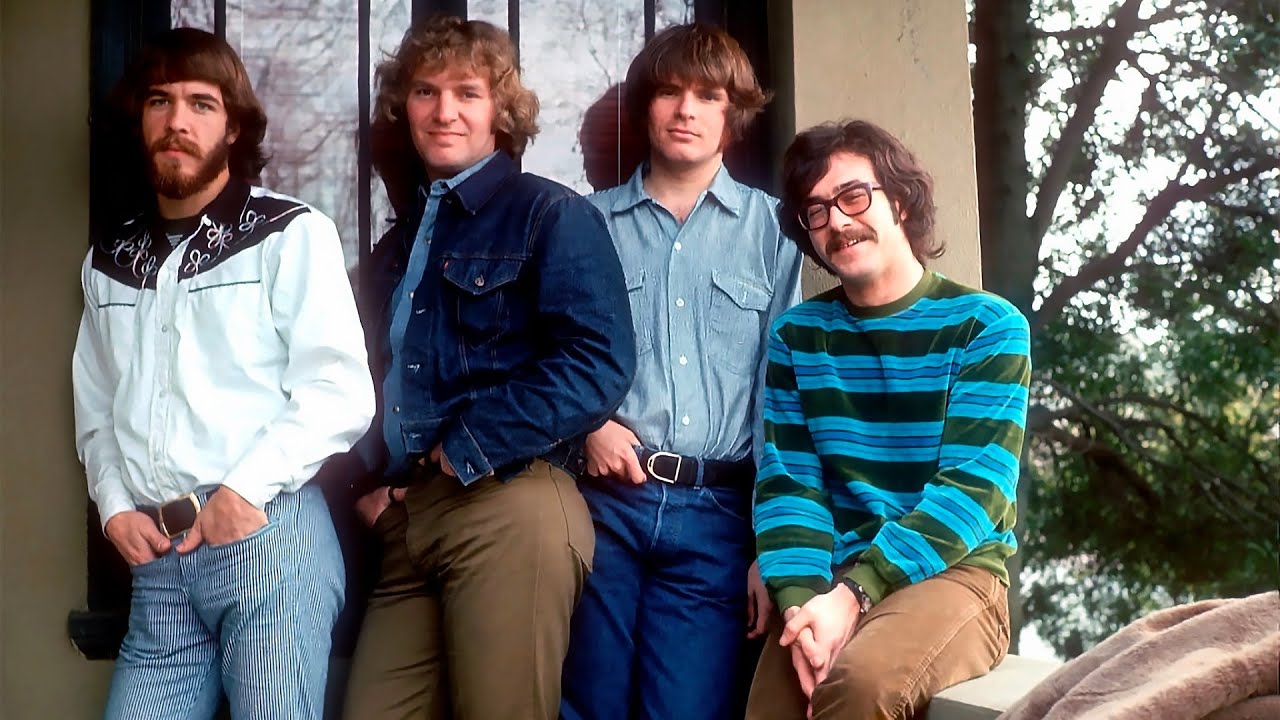
“Get Down Woman” is CCR in their earliest, hungriest form—raw desire and restless pride riding a swing-shuffle groove that won’t sit still, even when the heart wants to.
If you want the essentials right away: “Get Down Woman” is a John Fogerty original from the band’s debut album, Creedence Clearwater Revival, released in June 1968 on Fantasy Records. The track appears on side two, running 3:08, and it was recorded during the album sessions in February 1968 at Coast Recorders in San Francisco. It was not released as a single, so it didn’t have a “debut chart position” of its own—but the album that carried it peaked at No. 52 on the Billboard 200, powered by the breakout single “Suzie Q” (which reached No. 11).
That’s the history on paper. But “Get Down Woman” is more interesting in the air.
In 1968, Creedence Clearwater Revival were still shaking off their old skin. They’d only recently stopped being the Golliwogs, and their debut album is full of that transitional electricity—half cover-band muscle, half new identity being carved out in real time. Amid the famous covers and the long, radio-baiting sprawl of “Suzie Q,” “Get Down Woman” stands out because it sounds like Fogerty testing a private engine: a groove that swings like old R&B, but hits with the punch of rock ’n’ roll, lean and unsentimental.
There’s a telling remark attributed to Fogerty from that early era: he described “Get Down Woman” as his tribute to an “old swing-shuffle thing,” saying the words were secondary to the feel, and that the whole song grew from one guitar riff. Whether you treat that as strict gospel or as the kind of musician’s shorthand that becomes truer with time, it matches what you hear. This track doesn’t float on lyric poetry. It struts. It moves like somebody pacing the floorboards, trying to keep their dignity while their emotions keep grabbing at their sleeve.
And that’s where the song’s meaning lives: in the tug-of-war between control and craving.
The title phrase—“Get Down Woman”—can sound, at a glance, like command language. But in performance it comes across more like a plea shouted over a loud band: come down here, come back to earth, stop hovering just out of reach. It’s the voice of a man who feels the ground shifting under him and tries to stabilize it with rhythm. The narrator isn’t serenading; he’s negotiating. He wants closeness, but he also wants the upper hand. He wants her, but he refuses to sound needy—so he wraps neediness in swagger and lets the groove do the talking.
Musically, it’s a small preview of what would soon make CCR unstoppable: clarity. No psychedelic fog, no studio trickery trying to impress the era. The guitars cut clean; the drums push forward; the bass sits where it should—steady, practical, unromantic. Even at this early stage, you can hear how Fogerty thought like a producer: the band is tight, the arrangement is spare, and nothing distracts from momentum. The song ends before it overstays—because CCR were already learning that power isn’t always volume; sometimes it’s discipline.
What’s especially poignant, listening now, is knowing where this sits in the larger CCR arc. In 1968 they were not yet the hit factory that would flood 1969 with classics. They were still the hard-working Bay Area band trying to get their name said on the radio without sounding like anyone else in their neighborhood. “Suzie Q” opened the door; songs like “Get Down Woman” show them walking through it with their sleeves rolled up, bringing old American rhythms with them—music that smelled of dance halls and jukebox corners, not acid posters and incense.
So if you return to “Get Down Woman” today, don’t go looking for the polished monument. Hear it instead as a snapshot of becoming: four musicians in a San Francisco studio, still early in the story, already stubbornly out of step with the times—and somehow sounding timeless because of it. It’s CCR before the myth, before the politics, before the anthems—just a band locking into a swing-shuffle pulse and turning romantic frustration into something you can tap your foot to.
Sometimes that’s what the best early tracks do: they don’t give you the whole biography. They give you the heartbeat—quick, rough, and unmistakably alive.